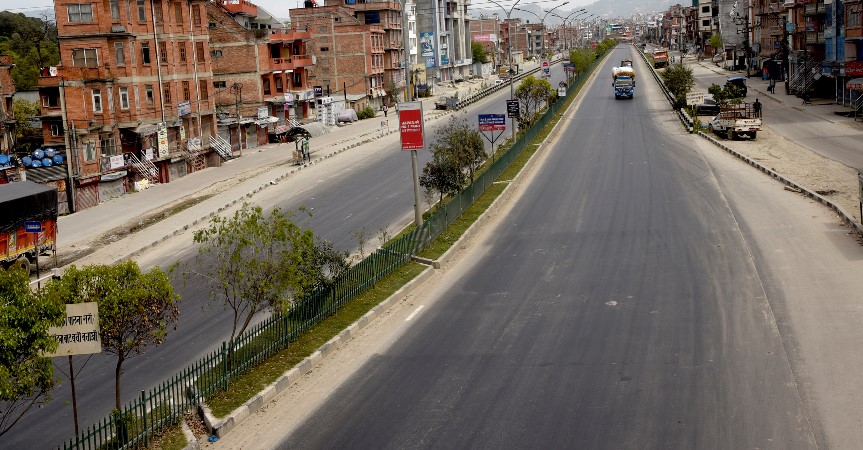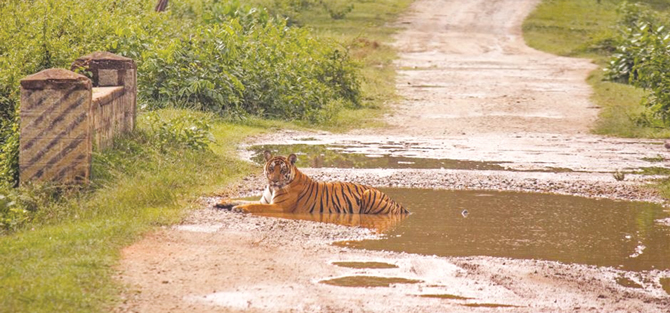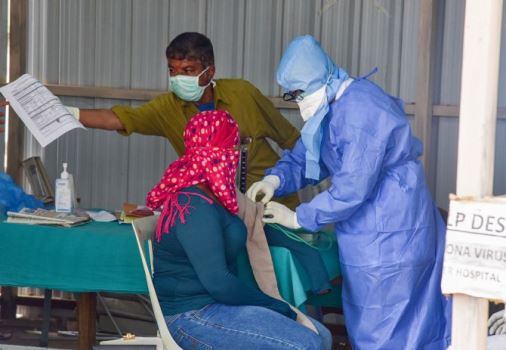Pangolins being poached for scales

By Indira Aryal
Kathmandu, Mar. 8: On November 25, 2020, officials working for the Central Intelligence Bureau (CIB) and Nepal Police in Bhaktapur rescued a wild, critically endangered pangolin from poachers attempting to traffic the said animal for its body parts.
The authorities were able to trace the pangolin being carried around inside a small wooden box at Lokanthali, Bhaktapur somewhere around mid-afternoon.
It was then taken to the Metropolitan Police station Byasi, Bhaktapur. According to the police investigation team, the wooden box confiscated from the poachers had only one passive pangolin inside, when the police first observed the contents inside, said Prativa Kaspal, a pangolin researcher.
Kaspal, also an IUCN SSC Pangolin Specialist Group-Nepal member, said when police officials were about to transport the pangolin to the Divisional Forest Office in Bhaktapur and hand over the case for further legal action against the poachers, they found that the pangolin had given birth to a pup inside the box.
“Nobody knew she was pregnant until she gave birth to the little pangopup,” he added. Nepal lacks information about pangolin reproduction biology and the measures associated with the handling of the newly born pangopup, so forest officer at Division Forest Office Bhaktapur, Prem Prasad Khanal asked Kaspal, the pangolin researcher, to lend his expertise on the matter.
According to Khanal, they filed a case against the traffickers at the Bhaktapur District Court, who are facing legal actions.
The team decided to move the mother and pup to the central zoo. However, since the zoo had failed many times to rear the pangolins in a captive environment, the team decided to release them in the wild to their natural habitat, claimed Kaspal.
Globally, there are eight species of pangolins, all of which are the most commonly trafficked animals in wildlife trade. The pangolin’s scale is said to be a key ingredient in Chinese tradition and medicine, although the Chinese government had placed a ban on pangolin scales for commercial use in June, 2020.
“In Nepal, several ethnic communities still consider pangolin meat a delicacy and believe that it harbours some medicinal benefits. This sort of assumption is not unique to Nepal but in several other countries, which has been driving the trade,” he said.
Nepal is home to two species of pangolins - the Chinese pangolin and the Indian pangolin. The animals are found in 44 of the country’s 77 districts mostly in the red soil areas of the Mahabharat range, Khanal said.
Pangolins are known to be shy mammals. They are harmless creatures who feed on ants and termites. There are no official statistics of pangolin population in Nepal. Since they mostly stay in hollow trees and underground holes, they are difficult to keep track of, elaborated Khanal.
Pangolins play an important role in the ecosystem. Considered as being a natural insect controller, a single pangolin can consume up to 70 million insects annually. Local awareness is a must so that communities are fully aware of the benefits of the pangolins, Khanal said.
All the species of pangolin are listed on the IUCN (International Union for Conservation of Nature) Red List of Threatened Species. The Government of Nepal has listed both pangolin species in schedule I of the National Parks and Wildlife Conservation (NPWC) Act 1973.
Recent News

Do not make expressions casting dout on election: EC
14 Apr, 2022
CM Bhatta says may New Year 2079 BS inspire positive thinking
14 Apr, 2022
Three new cases, 44 recoveries in 24 hours
14 Apr, 2022
689 climbers of 84 teams so far acquire permits for climbing various peaks this spring season
14 Apr, 2022
How the rising cost of living crisis is impacting Nepal
14 Apr, 2022
US military confirms an interstellar meteor collided with Earth
14 Apr, 2022
Valneva Covid vaccine approved for use in UK
14 Apr, 2022
Chair Prachanda highlights need of unity among Maoist, Communist forces
14 Apr, 2022
Ranbir Kapoor and Alia Bhatt: Bollywood toasts star couple on wedding
14 Apr, 2022
President Bhandari confers decorations (Photo Feature)
14 Apr, 2022









